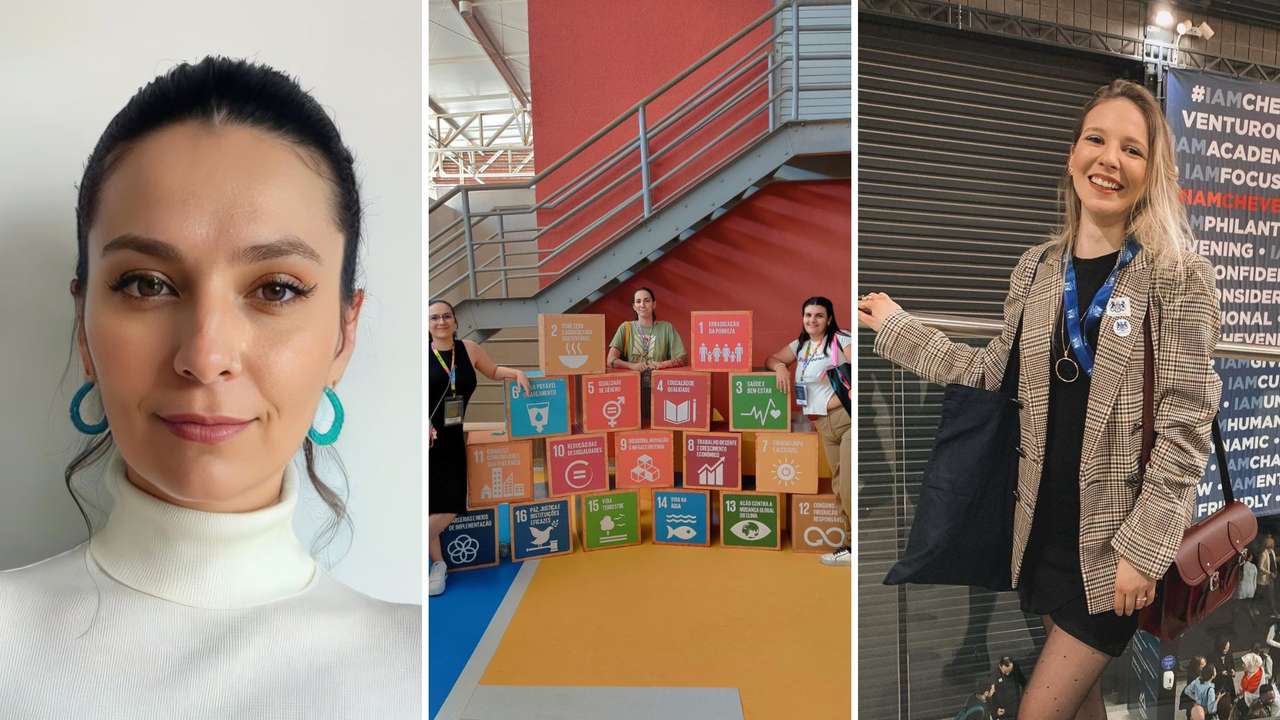Brazilian women who missed COP28 shed light on unequal representation from the Global South

The United Nations Climate Change Conference (COP28), the largest decision-making forum on environmental concerns, has ended. But as the conclusions and agreements are unpacked, critical voices emerge to highlight the failures. This is exemplified by a group of women from Northeast Brazil who, due to a lack of resources, were unable to attend the gathering and now express frustration at the insufficient representation of Global South voices.
"People tend to focus more on the discussion but forget about the people inside" said Carolline Querino, a Brazilian climate and gender researcher and activist. Carolline, along with four other Brazilian women, founded a consultancy group called CAJU, which focuses on designing and managing projects related to socio-environmental development and diversity. This year, they hoped to attend COP28 in Dubai to shed light on water access and distribution issues in Northeast Brazil, a topic they have been investigating for a year.
"We knew it was necessary to analyse the problem from a gender perspective, to find data," explained Carolline. According to their findings, women in rural areas bear most of the burden, as they are considered primarily responsible for finding water for their households and have to trek miles to the nearest distribution point.
As a native of Pocinhos, a city in the Northeast region of Brazil, Carolline navigated her childhood amidst challenges in water access and a sense of neglect from national governments. Motivated by shared experiences with other members of CAJU, they aimed to participate in COP28 to secure funds and establish connections with leaders, influencers, decision-makers, and potential project funders. Most of them had already taken part in COP26 in Glasgow, Scotland, while pursuing postgraduate studies in the United Kingdom with the support of a British scholarship.
But this time, the team was unable to gather the resources for their journey, despite trying until the last days. They say that they reached out to colleagues, national governmental agencies, international organisations and NGOs, but couldn’t secure the necessary financial support.
“We even had the official credentials in our hands," said Carolline, emphasising their frustration at being so close to their goal and yet unable to reach it. She added that they even changed the original plan, reducing the number of participants from four to just one, but without success.
The Brazilian activist also regrets that they received official acceptance from COP one and a half months before the event when flight and hotel prices were already high. “From Brazil, the tickets were already around $2,000 at that time,” she explained, highlighting that these deadlines can be particularly challenging for people who have to travel long distances.
Carolline and her colleagues' testimony raises a critical issue: the unequal representation of the countries most vulnerable to climate change in the largest climate event.
A study on this topic highlights a historical underrepresentation of the Global South in international conferences on climate change. The research asserts that perspectives are unevenly represented in these negotiations, as NGOs from the Global North still constitute the vast majority. In COP21 in Paris, it was revealed that NGOs from the Global South accounted for only 25 per cent of the total representation. This disparity became even more concerning during the COVID-19 pandemic, as strict vaccination rules and skyrocketing hotel and travel prices added an additional layer to the challenges.
The unequal representation extends to academic research as well. A study conducted by Carbon Brief analysed the gender and country affiliation of approximately 1,300 authors who contributed to the 100 most cited climate change research papers from 2016 to 2020. The findings revealed that nine out of every ten authors were affiliated with institutions from the Global North – defined as North America, Europe, and Oceania.
According to the same investigation, none of the top 100 most-cited climate science papers were led by a scientist from Africa or South America. Despite these regions being among the worst hit by climate change, academics struggle to be published, with fewer than 1% of the authors included in the study based in Africa.
The story of Carolline and her team illustrates the challenges faced by many voices from the South trying to participate in crucial discussions on climate issues. The four women now advocate for inclusion, echoing others who call for a shift in power dynamics, decision-making, and representation.
“We need more resources to continue our research, but mainly to fund projects that can urgently address and improve these realities. Sometimes, it is just necessary to raise awareness", Carolline said.
The Brazilian activist also wonders: Can these changes occur before trust in international mechanisms erodes entirely, or before climate change causes irreparable harm to the most vulnerable communities?